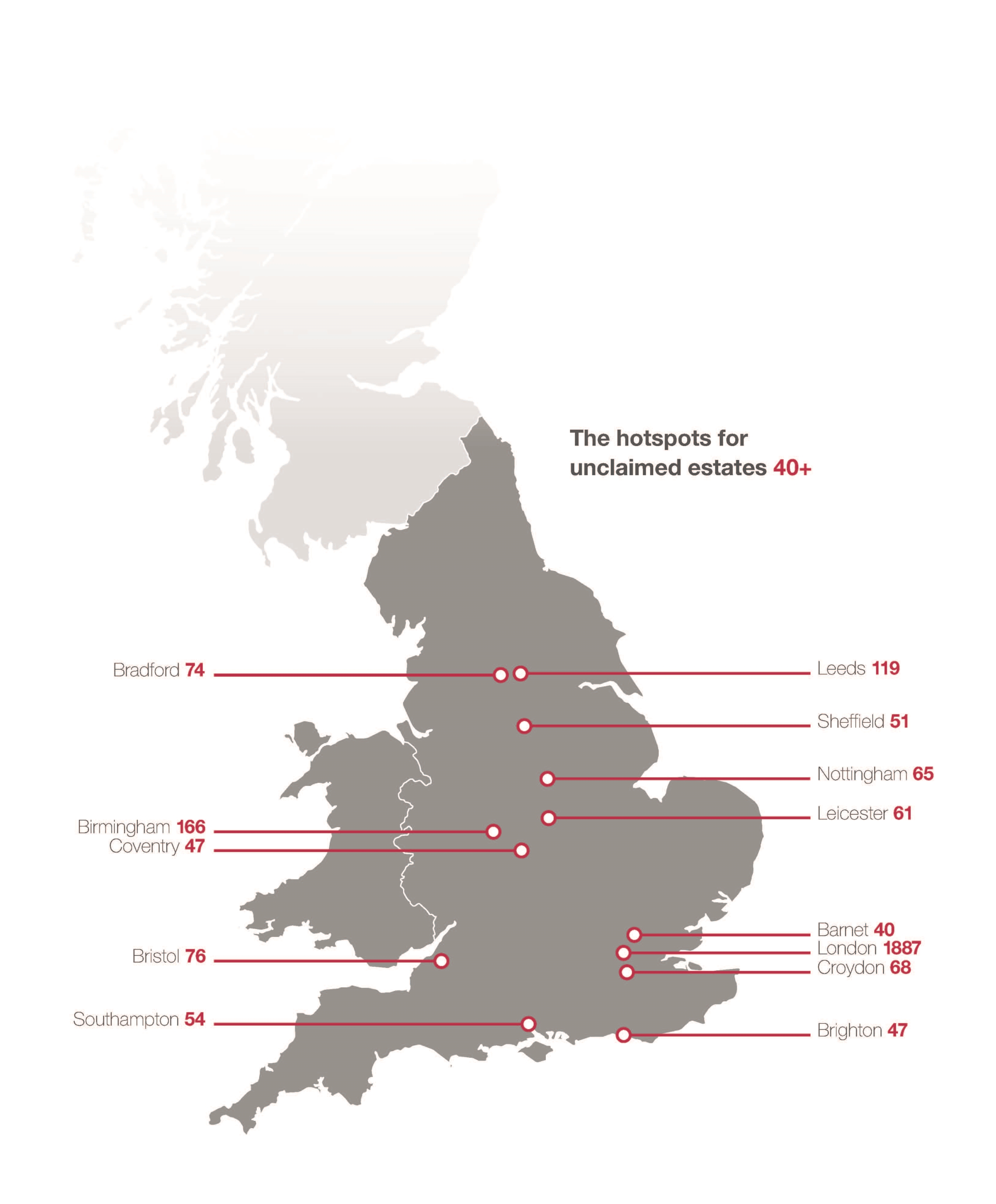The Treasury has revealed details of almost 6,500 unclaimed estates of people who died across the UK, with potentially millions of pounds of inheritance sat in limbo until the rightful heir is found.
Unclaimed estates, classed as ‘ownerless property’, occur when there is no will – or the beneficiaries of the will cannot be traced - and the next family member, following the rules of intestacy, cannot be found.
The Treasury only advertises estates with a net value of £500 or above. Official figures from 2021 showed that a total of £77million in unclaimed inheritance was languishing in Treasury coffers.
How does your area fare when it comes to unclaimed estates?
The full list of unclaimed estates can be found on the Government website.
If no relative can be traced within 12 years, the dormant estate becomes the property of the Crown.

If there is no valid will, then an estate passes to the next-of-kin, which follows a strict order. The Government’s website offers the best advice on intestacy rules:
Craig Ridge, Head of Contentious Probate at Higgs LLP, said claiming an estate is a straightforward process for those entitled to it.
“Unclaimed estates generally come about if the executors cannot trace a beneficiary who has either been named in a will or is next in line to inherit,” said Craig.
“Should you believe you are entitled to an estate, it’s as simple as writing to the executors of the will and they will do everything for you from that point.
“If you are aware of the death, there really is no need for the services of heir hunters, which typically charge between 10 and 15%.”
Craig said if people know someone has died and they believe they might have been left something in a will, then they can simply search the probate records for documents and wills.
He added: “If there is a will you can get a copy for a nominal fee. If there is no will and you believe you are a in line to be the administrator as next-of-kin, an application can be made.”
Craig said having a valid will is an important step to avoiding unclaimed estates and is a key piece of evidence for those looking to contest a will.
This information is for guidance purposes only and does not constitute legal advice. We recommend you seek legal advice before acting on any information given.




